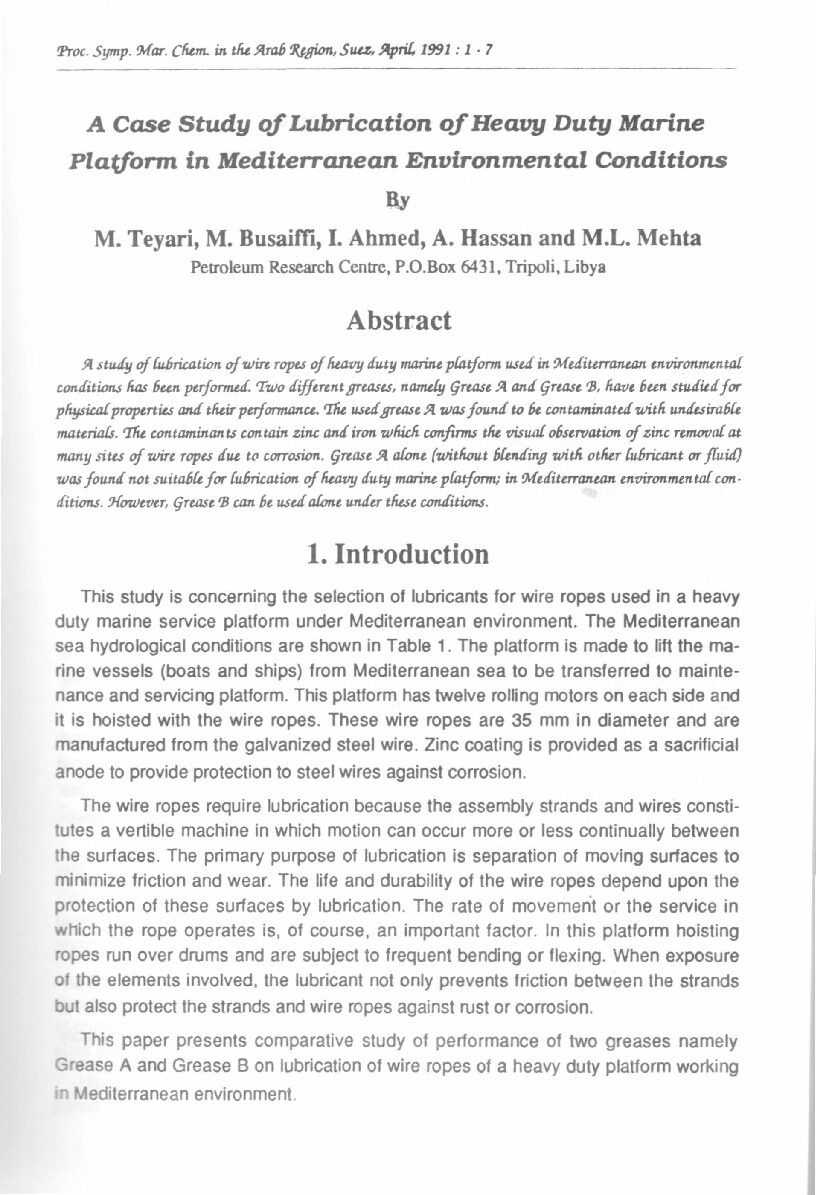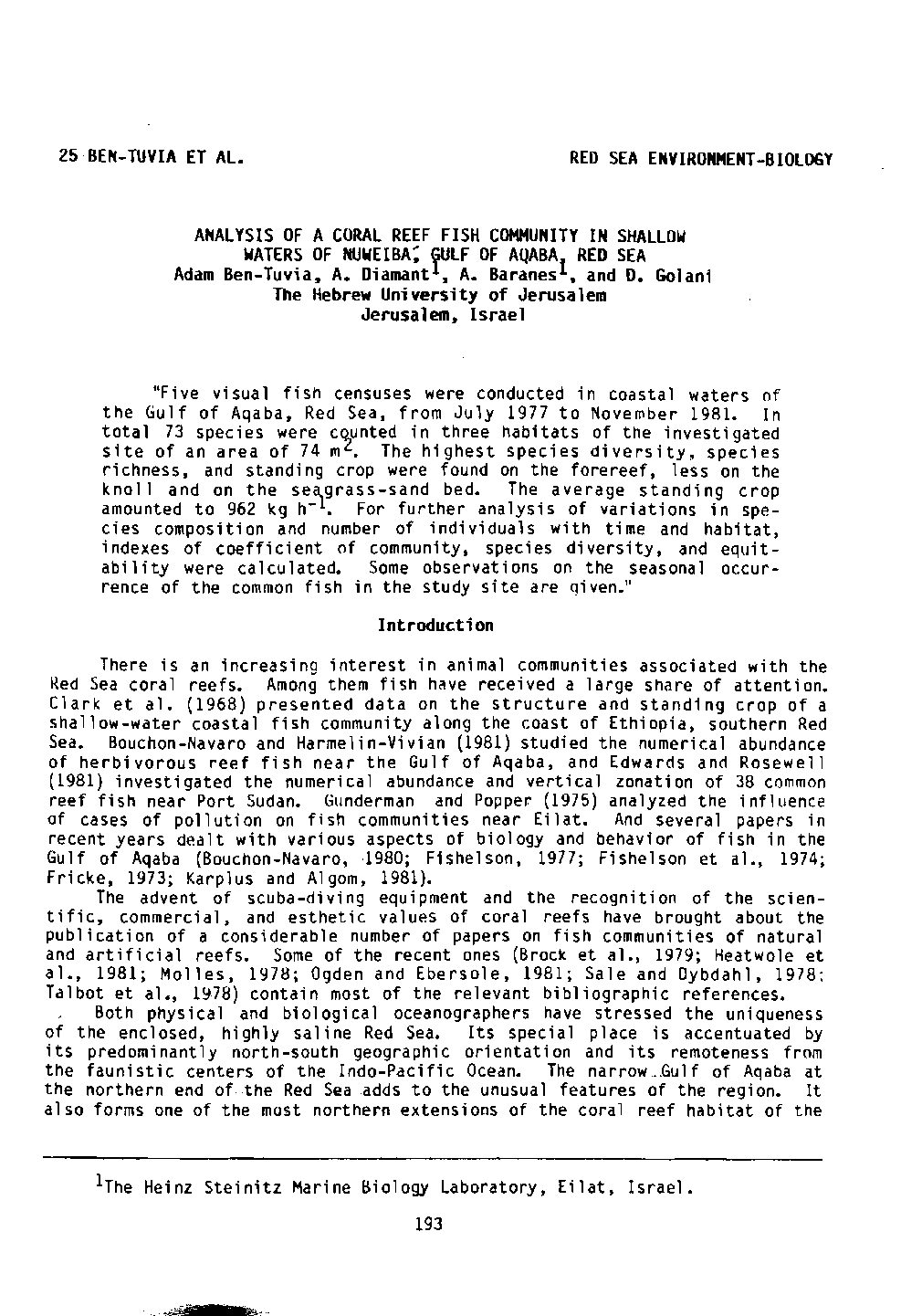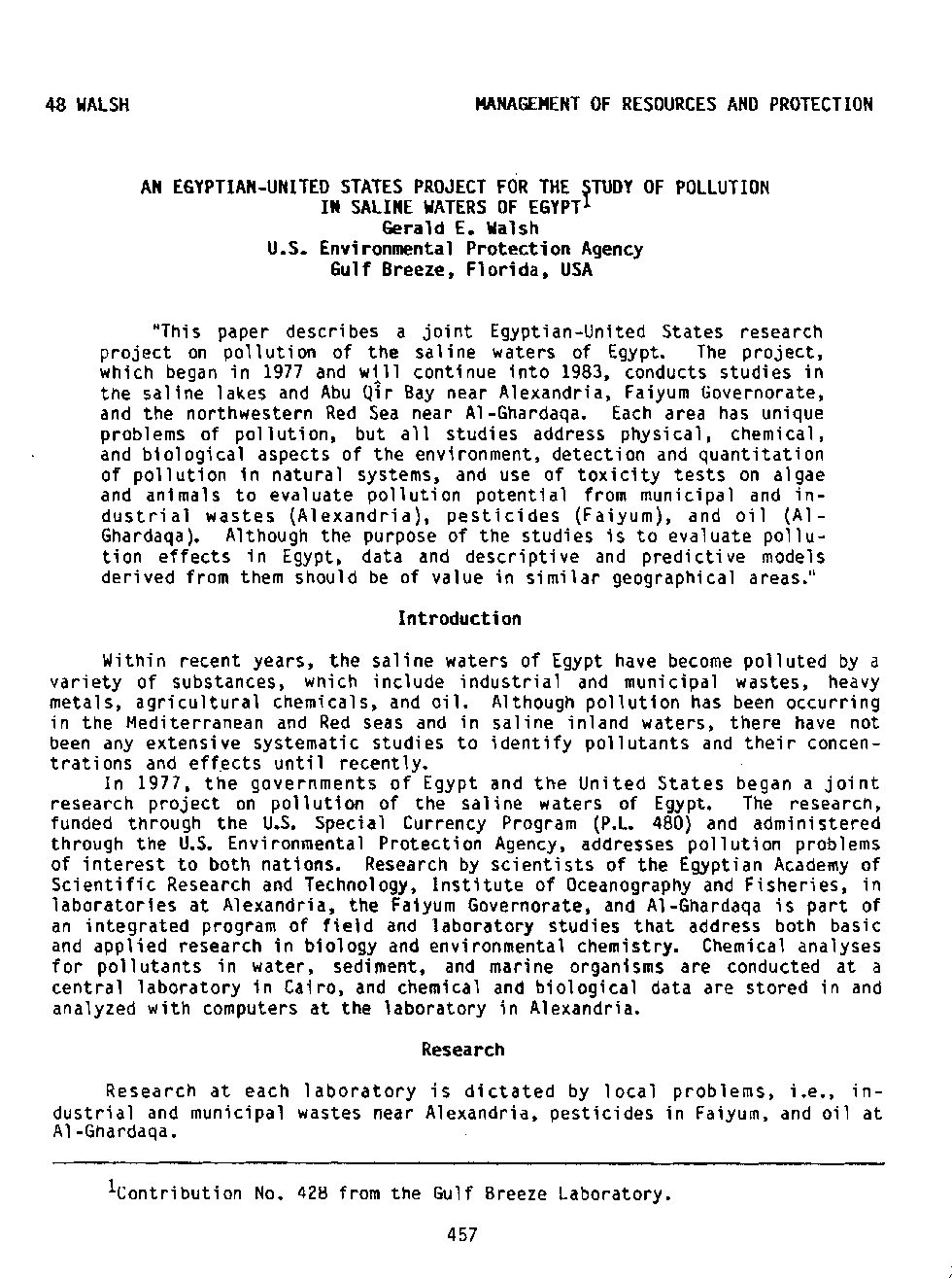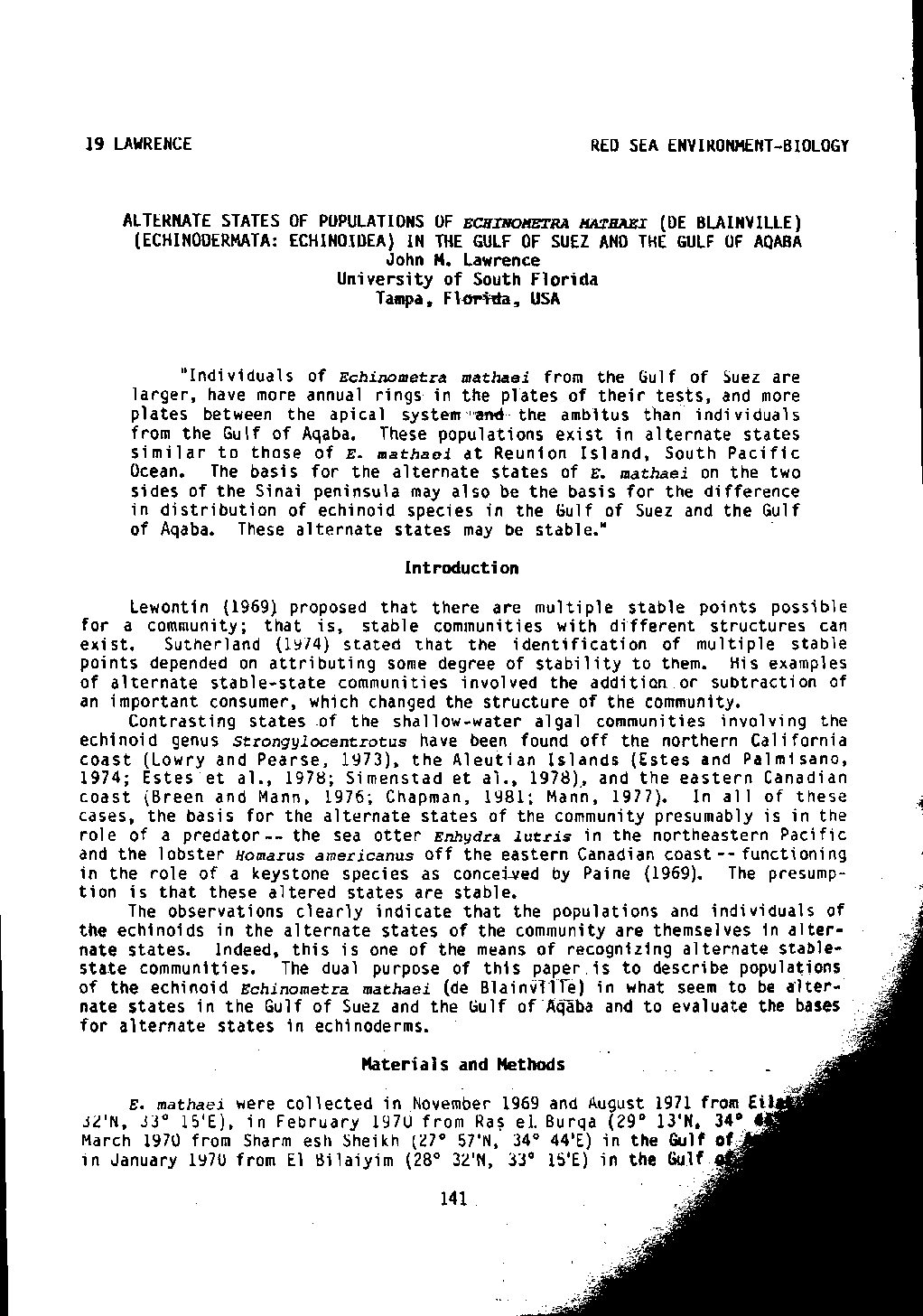Categories
vol-16STUDIES OF THE EFFECT OF TEMPERATURE VARIATIONS, DIFFERENT
LIGHT INTENSITIES AND SOME NUTRIENTS ON GROWTH AND
REPRODUCTION OF PEDIASTRUM BORYANUM.
A.E.F. MEDHAT
Department of Botany, Faculty of Science, Beni-Suef.
ABSTRACT
The main object of this work is to study the effects of
temperature variations, varying light intensities, and some
nitrogenous substances (nitrate, ammonium salts, proteins
and peptones) and non-nitrogenous substances (dextrose,
sucrose and phosphate) on growth and reproduction of
Pediastnn boryartUII. The organism was cul tured under
controlled conditions of light and temperature in the
laboratory using Schrieber and Chodat medium. The results
showed that higher temperatures above 300 C have lethal
effects on the alge, while Temperatures below 300 C favoured
growth and asexual reproduction of the alga. Temperatures
below 200 C favoured sexual reproduction. Higher light
intensities (3,229 to 2,153 Lux) accelerated the rate of
growth and spore formations. At low light (below 1,076 Lux)
fertilisation was accelerated and occaisonal zygospores
were found. Nitrate and phosphate affected the growth of
the alga but when the amount of phosphate or nitrate was
very little, they limited its growth. Provided that all
other factors were found in excess, it was the phosphate
concentration that affected growth. Addition of
bacteria-free dextrose to the culture media stimulated
Pediastnn cells to grow fast for about 6-10 days after
which growth was diminshed. Cells fed with proteins
continued growth and remained healthY, while those fed with
sucrose ceased growth in about 7 days, Cultures provided
with excess dextrose and less peptone accelerated
reproduction much nore than growth.







